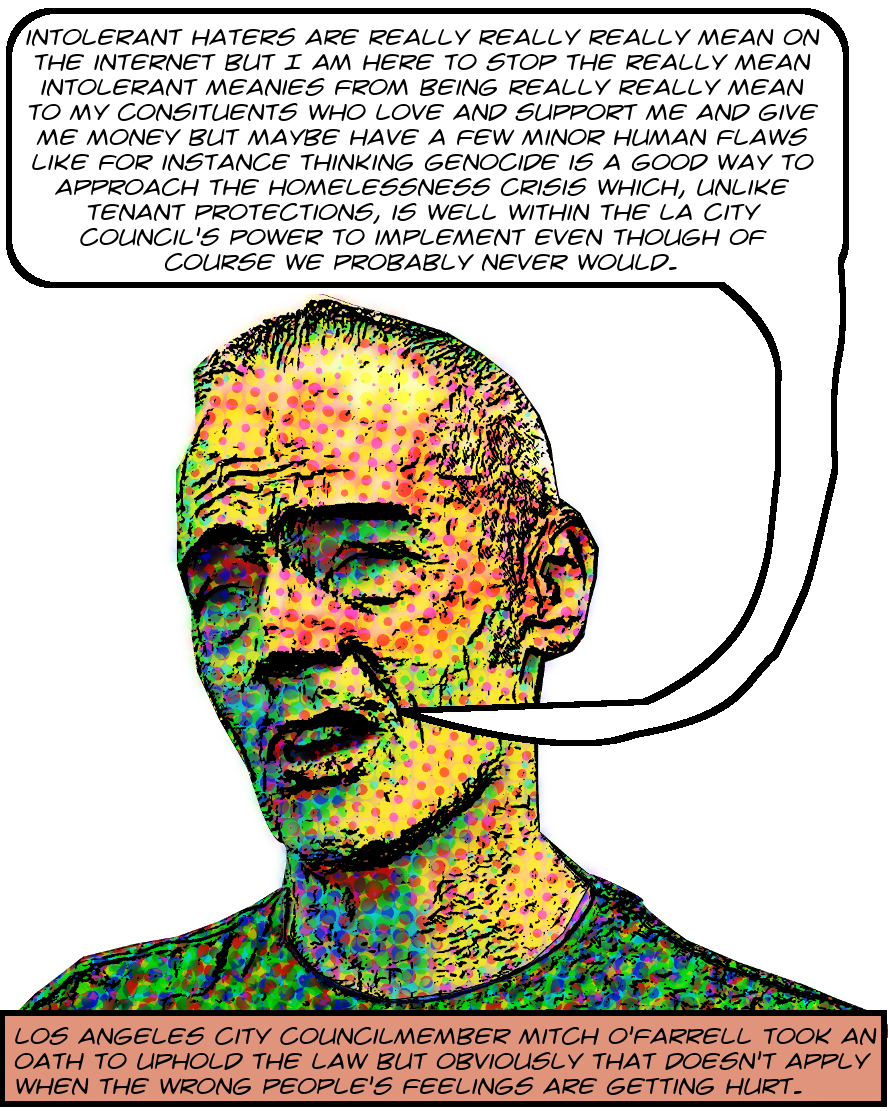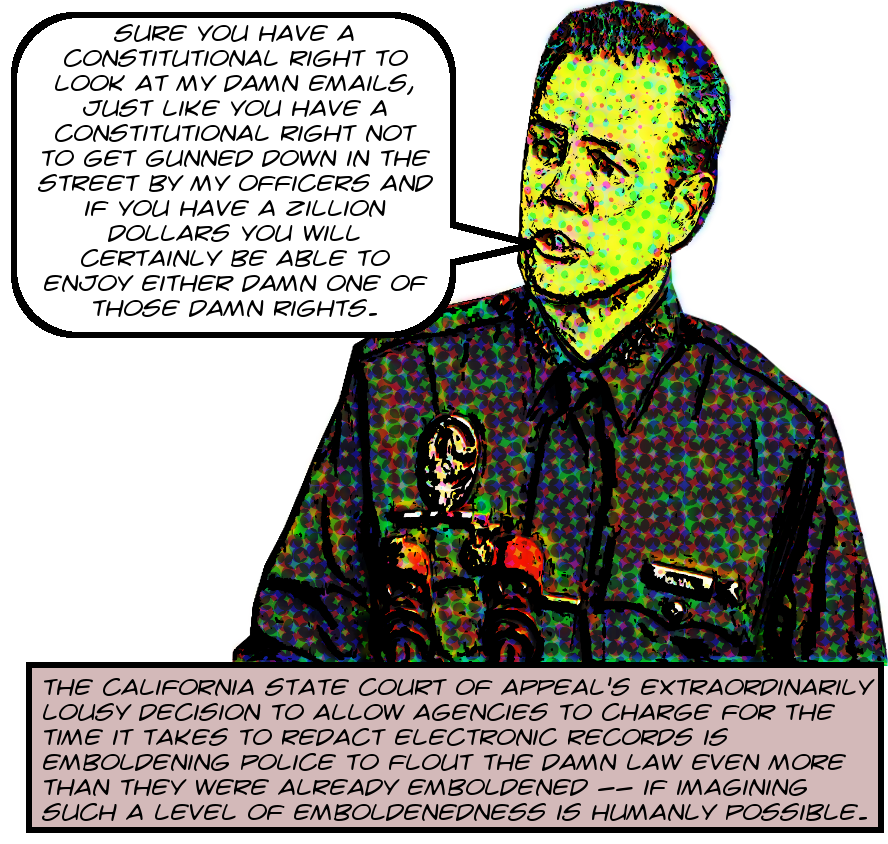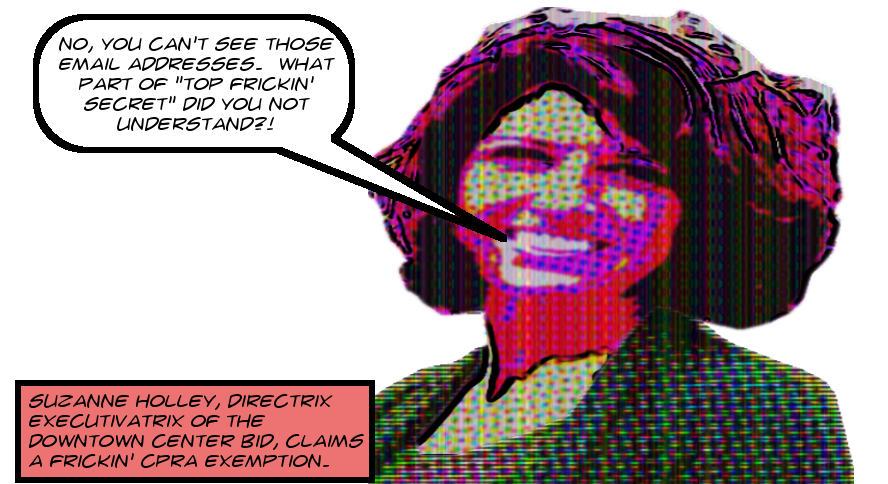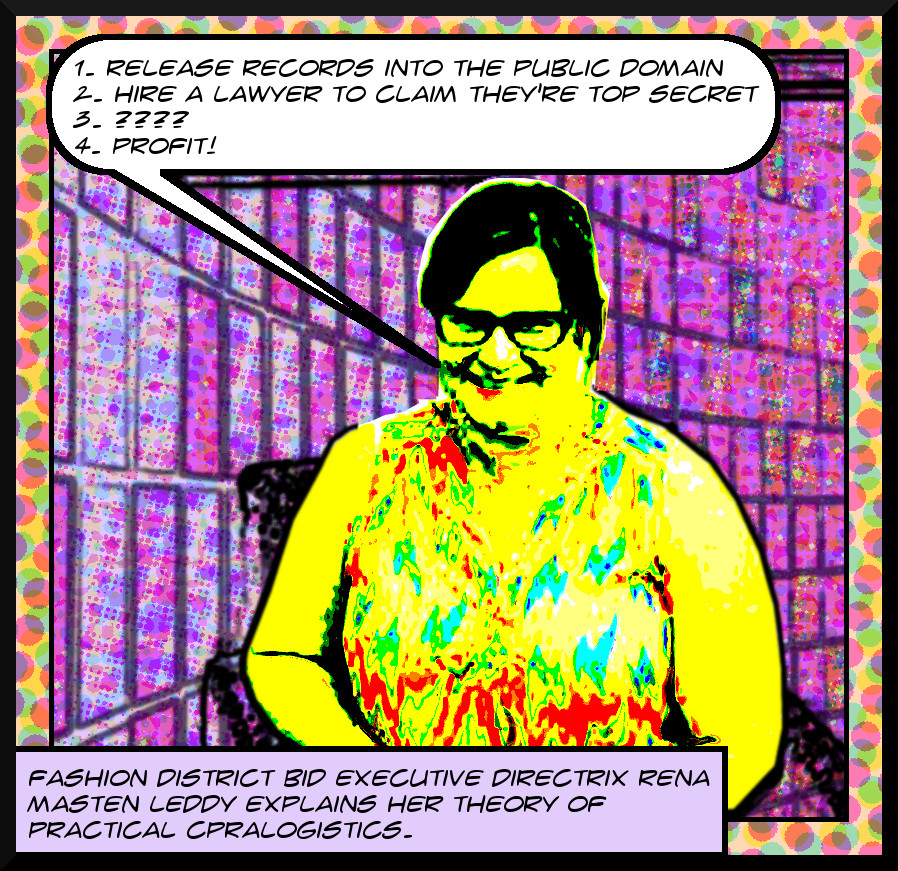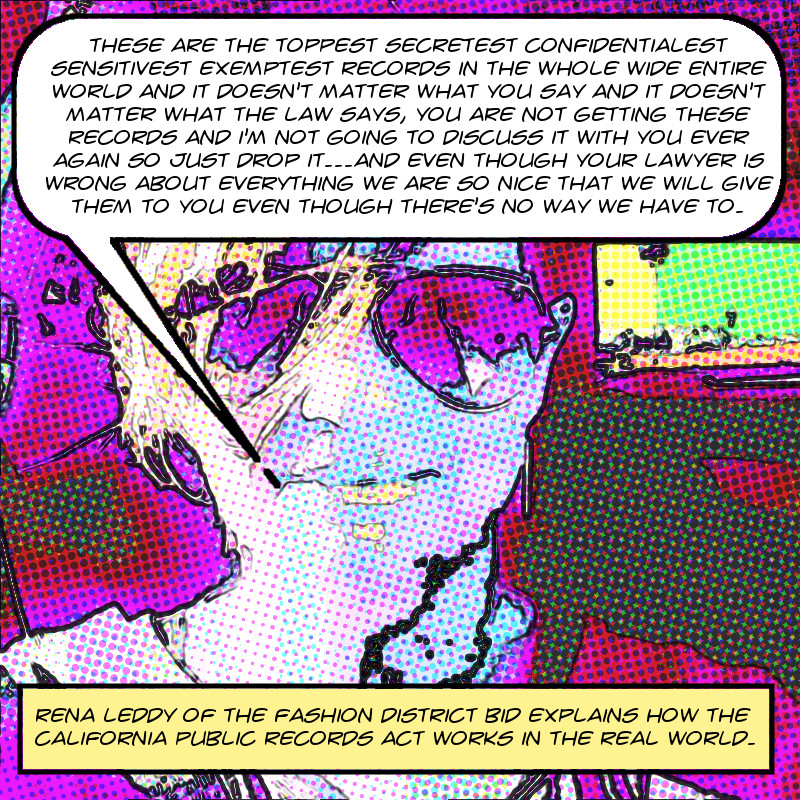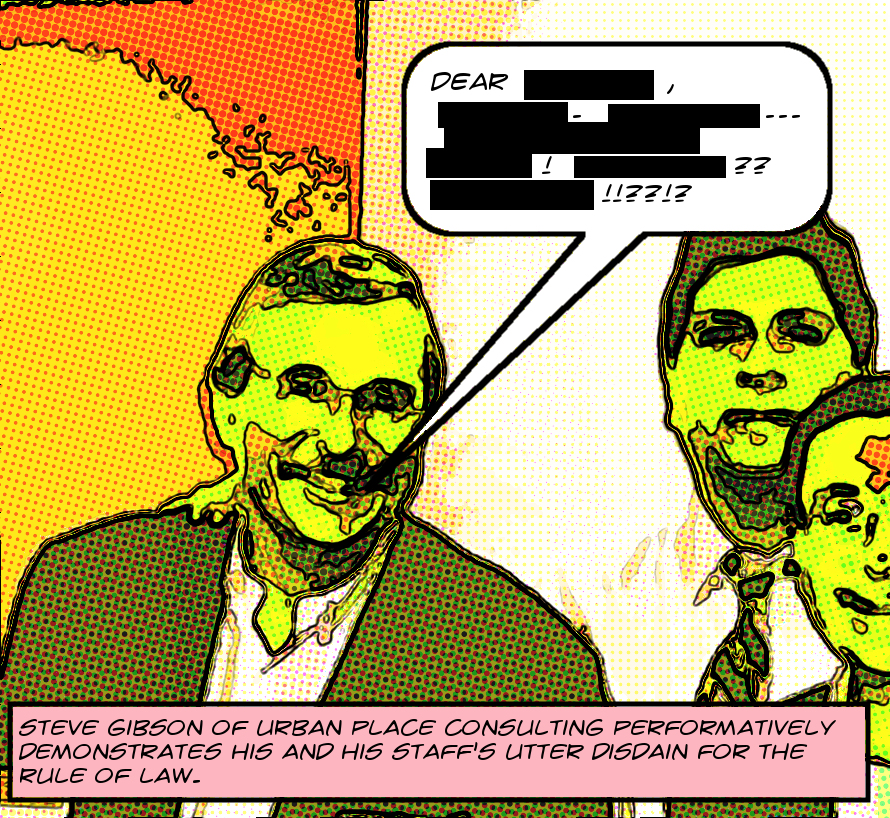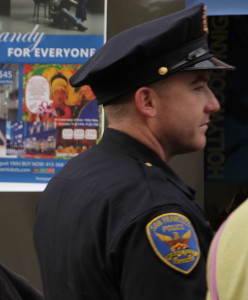Here’s another installment in my ongoing series of posts about the City of Los Angeles and the interesting ways in which its various departments violate the California Public Records Act.1 Today I’m looking once again at Los Angeles City Council District 13, repped by the fecklessly idiotic troll doll Mitch O’Farrell, and some of O’Farrell’s illegal email redaction policies.2 The story actually begins last March.
At that time I received some emails from CD13 containing conversations between staffers, LAPD officers, and local owners of commercial properties about homelessness. The discussions were filled with dehumanizing stereotypes and calls to starve the homeless, to use pressure-washing and illegal planter placement and other hostile measures to displace them, and so on. All of this not just uncriticized, not just accepted, but actively encouraged and facilitated by City staff and LAPD officers.
I found the whole scene appalling and wrote a number of posts exposing these privilege-addled sociopaths, the main one of which is here but this other one about Kanye West flunky Anthony Kilhoffer is also good. Some of them flipped out and threatened me and apparently others complained to CD13 that I had exposed their sociopathy to the world or that I was mean to them on the internet or whatever. Since then, clearly in response, CD13 has redacted email addresses of basically every correspondent who’s not using a government email address.3
Dan Halden, who’s responsible for handling some of my CD13 CPRA requests,4 has told me that such redactions are legally justified because exposing constituents to personal mockery for advocating genocide against the homeless would create a chilling effect on their willingness to contact their elected officials. Here’s one instance of Halden’s articulation of this novel5 legal theory:
Continue reading Mitch O’Farrell And The California Public Records Act — Second Part Of A Series On His Outrageous Violations — He Has Instructed His Flunky — Dan Halden — To Redact The Names Of Constituents Who Send Him Insane Rage Rants Against Homeless Human Beings — Advocating Starvation — Forced Relocation — And Similar Genocidal Measures — And The Reason He Thinks He Can Hide Their Identities? — Because — Halden Says — Publicity Would “Chill” Their Willingness To Ask Mitch O’Farrell For “Help” — What He Means Is They Don’t Like Being Exposed And Mocked On The Internet For Their Sociopathy — At O’Farrell’s Bidding Halden Also Redacts The Names Of Actual Public Officials — Like Jittery Little Peruvian-Hating Psychopath Carol Massie — Of The Hollywood Property Owners’ Alliance — And Refuses To Explain Why — Although The Real Reason Is Obvious — O’Farrell Hates The Constitution — And He Hates The Law — And He’s Really Got To Go

